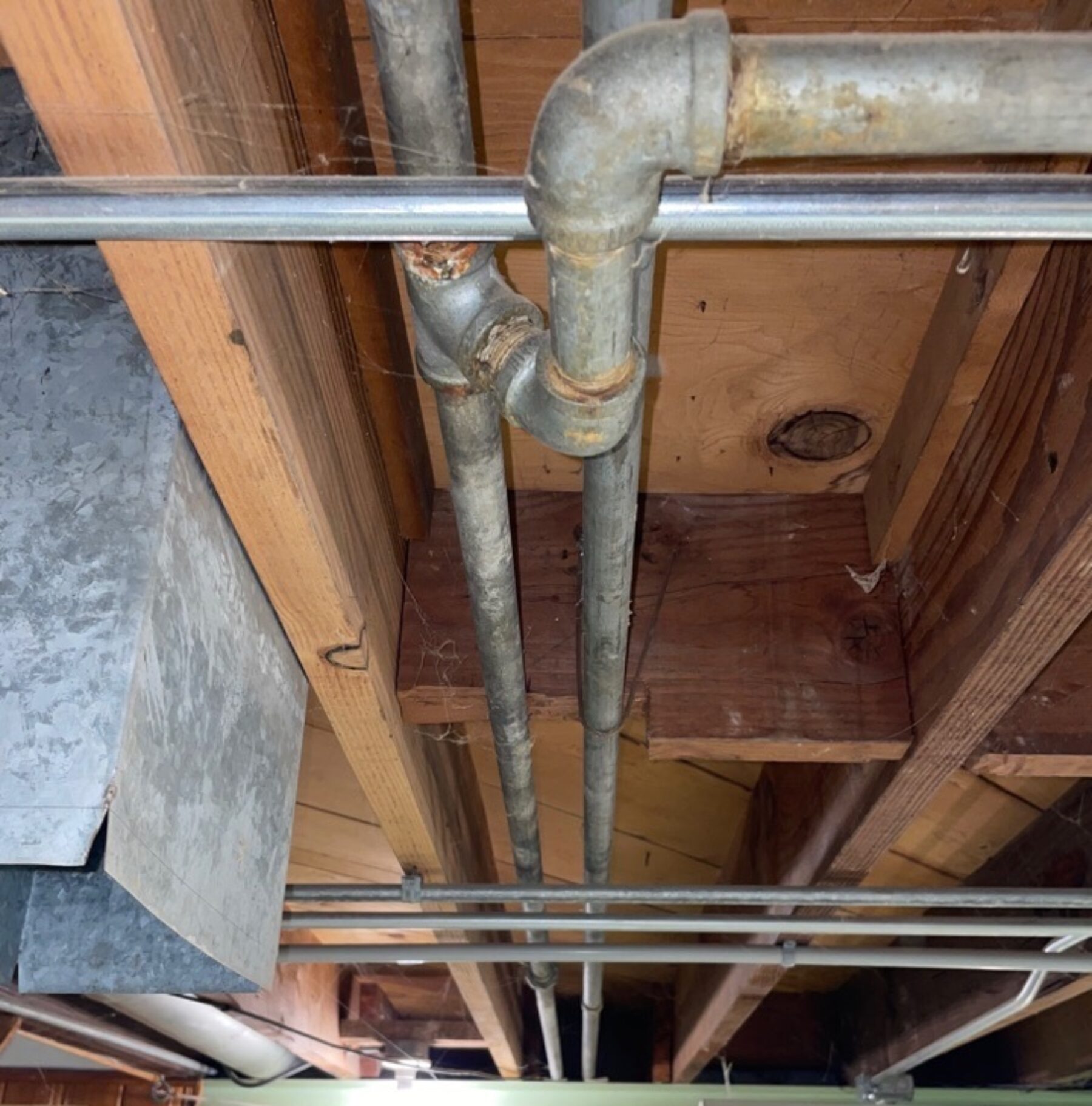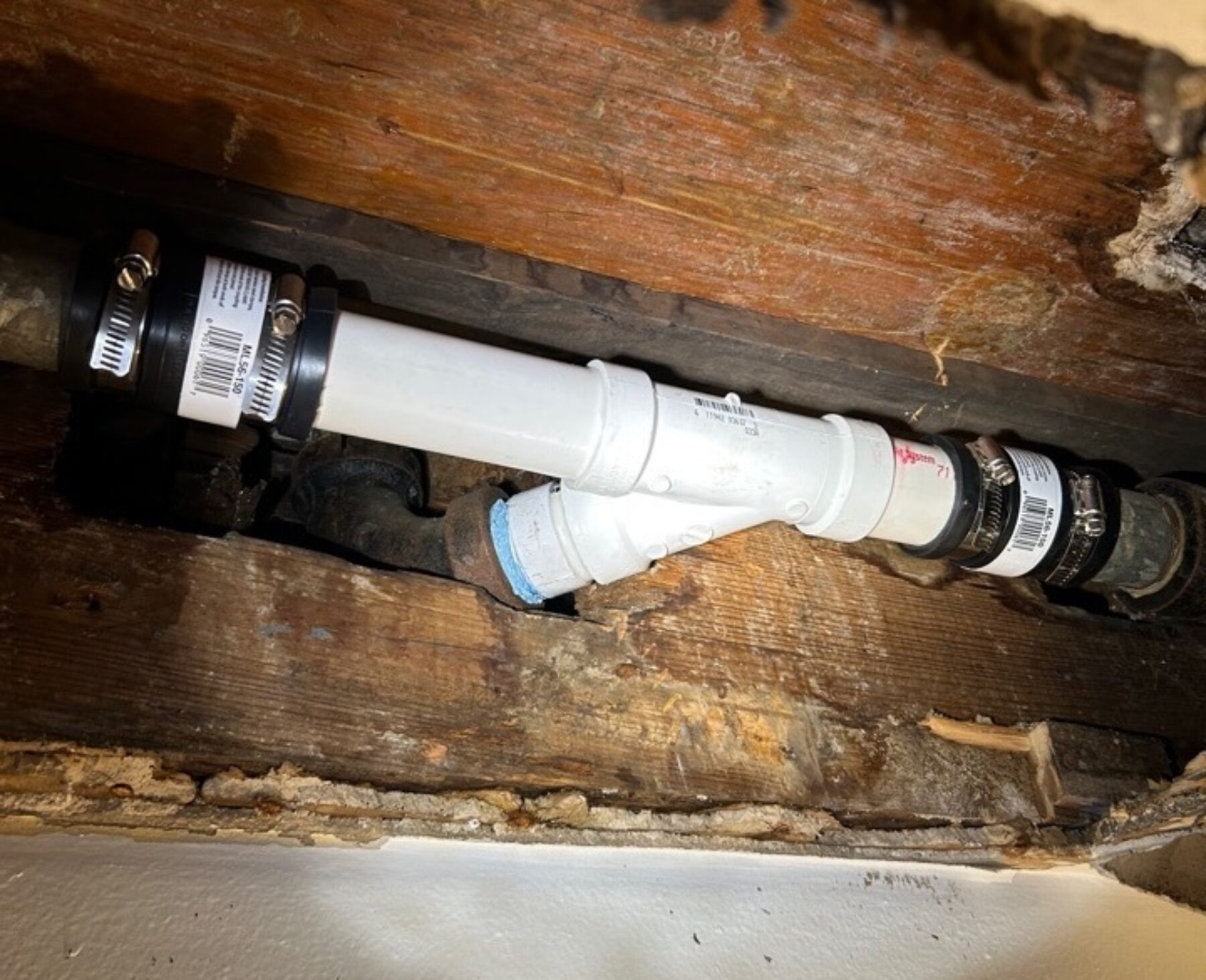March 12, 2024

Those of us in the plumbing profession consider safe water to be an essential part of the job. That includes the use of lead-free pipes, fittings, and other materials to minimize the chances that lead will make it to your water tap.
But many people are surprised to learn about the many factors that can lead to the presence of lead in their home water supplies. There are some common misconceptions about this issue we can help clear up.
Common Misconceptions and What You Need To Know
Misconception #1: If I have copper pipes at my meter, I’m in the clear.
Unfortunately, this is no guarantee. A lot of focus is on old lead service lines — the pipes connecting a home to the water main — because of old plumbing systems installed before the hazards of lead were understood.
However, service lines are just one factor. “You can have your water service line replaced all the way out to the street, but there is no guarantee that the water isn't traveling through lead before it gets to your home,” says Jessie Cannizzaro, founder of Milestone Plumbing.
For instance, repairs being done elsewhere in the water system might require workers to cut into lead-based materials that, despite safety efforts, can become dislodged. “Those shavings get introduced into the water service, and by opening up the faucet, now you've got small particles and shavings from the lead being pushed through to your tap.”
The same can happen inside a house, especially an older one. Before regulations were in place, many homes were built with lead-based solder or other materials, explains Jessie. “So, a lot of homes have residual amounts of lead in the solder or inside the brass fittings.”
The simple existence of lead pipes and lead-based fittings — whether inside the house or outside — might not cause issues. The problem often arises when they become disturbed, or from the solder that connects pipes.
Misconception #2: My local government has rules in place about lead pipes.
The water system supplying your home must meet standards set by the state and federal governments, but few municipalities in southeast Wisconsin have regulations about lead pipes.
A 2020 Environmental Protection Agency (EPA) regulation standardized requirements for lead-free fixtures, fittings, solder, and flux used in plumbing systems. Other federal guidelines require water utilities to regularly collect and analyze water samples from specific sites, with specific actions triggered if lead levels reach a certain amount.
In the area that Milestone Plumbing serves, only the City of Milwaukee currently has ordinances in place for repairs, in an effort to reduce the number of lead service lines that connect to water mains. If plumbers find a lead pipe at the meter and that line is in need of repairs, the city ordinance requires the lead to be replaced all the way out to the street. This water service is the owner’s responsibility, but there are programs in place to assist with these repairs and in some cases also help with the costs.
Misconception #3: If I get my water tested, I’ll know how much lead my family is being exposed to.
Milestone Plumbing is happy to conduct a water test for you, but with an important caveat: It will be accurate only for the time the test was taken. “When you do a water test, you’re only finding out about the water coming out of your tap at that moment,” says Jessie. “There’s no way of knowing for sure unless you're testing the water on a regular basis.”
Also, keep in mind that lead exposure can occur from the presence of lead in dust, soils, and paints. Even some types of toys and cookware may contain lead, especially if manufactured in a place where regulations don’t exist or in an era before lead was a concern.
Misconception #4: If my municipality doesn’t detect high levels of lead in the water, I don’t have to worry.
Even if a city’s water report passes the tests, there could still be lead in a home’s tap water for all the reasons mentioned here. And while the Environmental Protection Agency (EPA) sets 15 parts per billion as the trigger for water utility compliance, both the EPA and the Centers for Disease Control and Prevention say there is no safe level of lead exposure.
It's especially worrisome for children, who can experience health problems with only a small amount of lead exposure. “Lead in children is a real concern, and something that should not be taken lightly,” says Jessie. To be safe, she doesn’t let her children drink tap water from their 1920s-era house. Households may opt for filtration systems to treat water that will be used for drinking and cooking.
Misconception #5: A reverse osmosis filtration system fixes the problem, right?
Depending on the type of system used, RO systems can filter 90% to 99% of the lead from drinking water, but this is another item with an important caveat. Reverse osmosis (RO) systems work only if they’re maintained properly. “Without maintaining one of these systems, you’ll just have a false sense of security,” Jessie says.
Here are some things to keep in mind:
RO systems push water through four filters that, over time, become ineffective and need to be replaced. The typical replacement schedule, according to manufacturer guidelines, is every six months for three of the filters and every two years for the fourth.
Some households may need to change the filters more often if they’re heavy users. For instance, people who use filtered water for their pets might need filter replacements sooner as a result of higher consumption.
A tap with an RO system will have significantly reduced water pressure compared to conventional taps. This is one reason why it’s best to install a separate faucet for dispensing RO water.
RO water in its purified state can be corrosive to certain types of metal used in plumbing systems, so it’s important to make sure the system is installed and maintained properly by someone who understands what kind of materials and filters should be used.
One often overlooked component of properly maintaining an RO system is sanitization of the system during filter changes.

How Milestone Plumbing Can Help
Do you want to look into a reverse-osmosis filter system for your home? Are you interested in learning about other types of water filtration systems for your home? We can advise you on options and help you get the most benefit from the system you choose. Call us today at (414) 988‑4565 or email office@milestoneplumbinginc.com for more information.